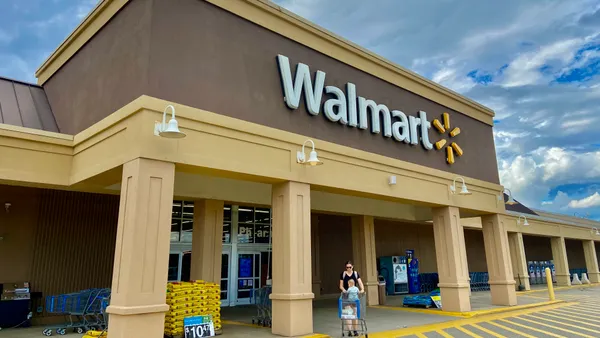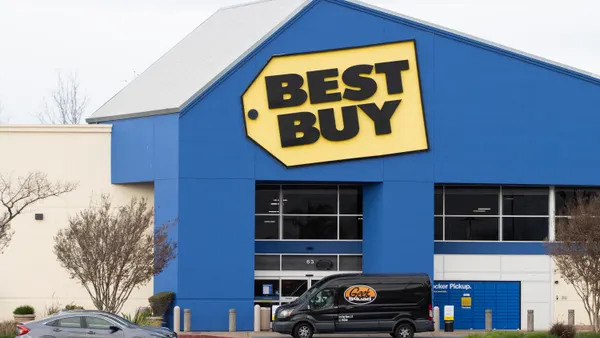Dive Brief:
- CommerceHub, a supply chain platform and network, has brought in former J.C. Penney and Home Depot executive Mike Amend as its new COO, according to a press release.
- Amend most recently served as executive vice president for omnichannel at J.C. Penney, a position the retailer eliminated earlier this year when they added oversight of omnichannel to the responsibilities of CIO Therace Risch.
- Prior to that, Amend was vice president of online for Home Depot, where he built the home improvement retailer's digital business "from the ground up" before Marvin Ellison, who was a Home Depot exec before becoming Penney's CEO, recruited him to the department store chain, Amend told Retail Dive in an interview. At Commerce Hub, Amend will focus on expanding product offerings and merchandise offerings available to its retail and brand partners.
Dive Insight:
CommerceHub is fairly unique creature in the retail world. Part software company, part B2B network, it exists in large part to help retailers expand their online assortments through drop shipping.
It boasts a network of 11,500 retailers, brands, distributors, suppliers and 3PL providers. The company said in 2017 it helped sellers fulfill merchandise orders worth about $16 billion in gross merchandise value.
CommerceHub competes with other software-as-service providers in the e-commerce space, and with retailer's own in-house solutions to omnichannel and drop shipping. Yet in its most recent 10-K the company said it believes there is no one company or group that can "compete with our business as a whole," namely, in the company's view, because of the network effects stemming from the size of its distribution network and the range of capabilities offered through its software.
Amend, who started his career on the technology side, at one point leading the global online technology at Dell, said his experience in retail could help CommerceHub improve its relationships, products and services. "Customers are the new chief merchants," Amend said. "Chief merchandisers used to pick out the products they thought best, and customers would choose among what was available. Customers are no longer simply accepting what you have. … They really expect you to have what they want, or they'll go somewhere else."
Amazon has capitalized on — and to some degree helped set — these expectations by building a massive marketplace operation to connect, via third parties, consumers to goods that the e-tailer doesn't have itself. CommerceHub, meanwhile, has helped retailers expand their online assortments by connecting them to suppliers who make or warehouse products that aren't necessarily core to those retailer's operations and aren't worth the cost of storing themselves. The company lists some big names among its retail customers, including Walmart, Best Buy, QVC, Kohl's and Dick's.
CommerceHub takes a cut of the transactions through its platform and grown revenue from about $65.8 million in 2014 to $111.1 million in 2017, according to its 10-K. Net income over that period more than doubled, from $4.3 million in 2014 to $9.9 million in 2017.
Amend said he wants to help CommerceHub better facilitate orders and smooth out transactions between retailers and suppliers. He also said there is an opportunity for CommerceHub to provide more visibility for retailers into their supply chain through the network and "basically help retail establishments manage the overall end-to-end customer experience."













